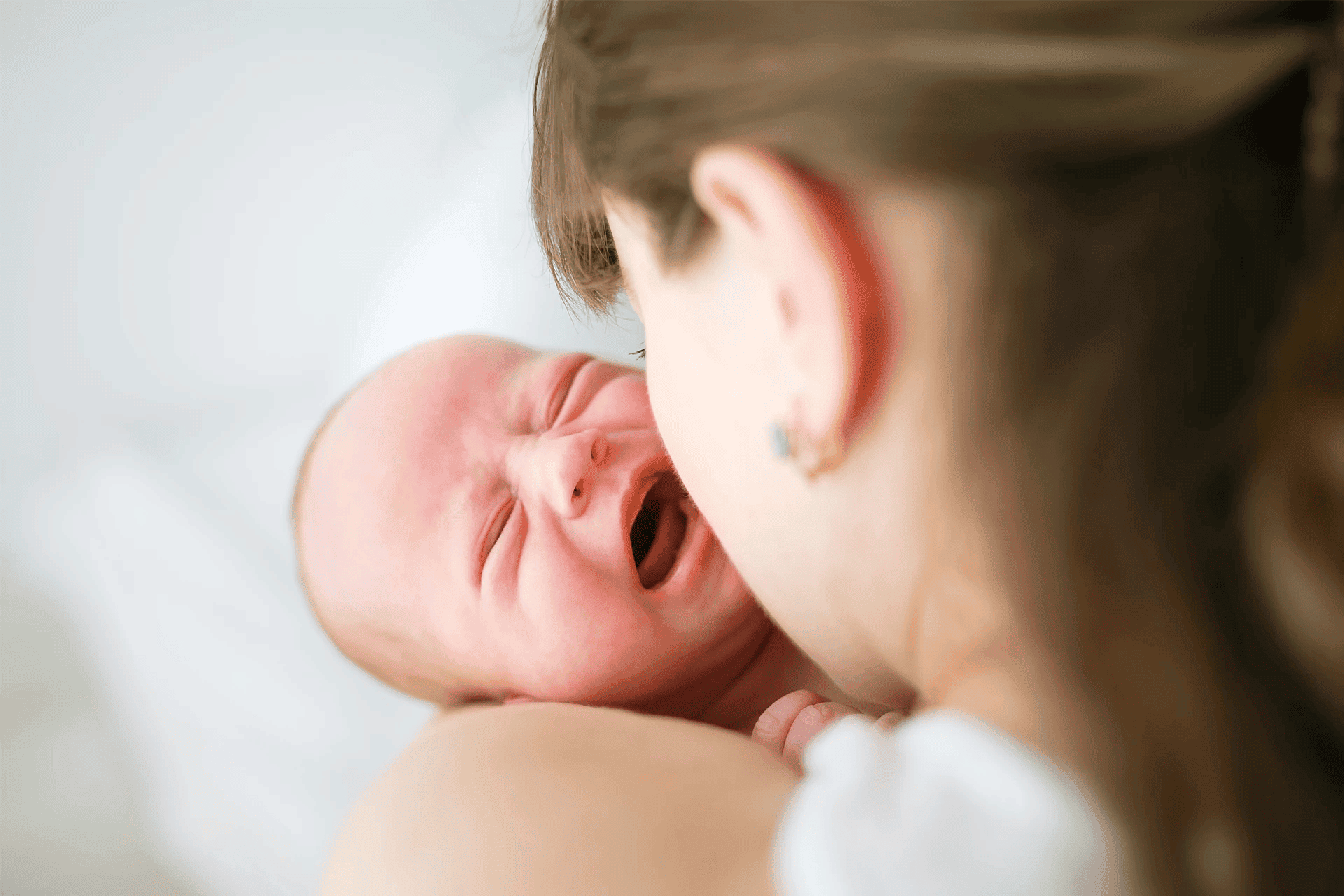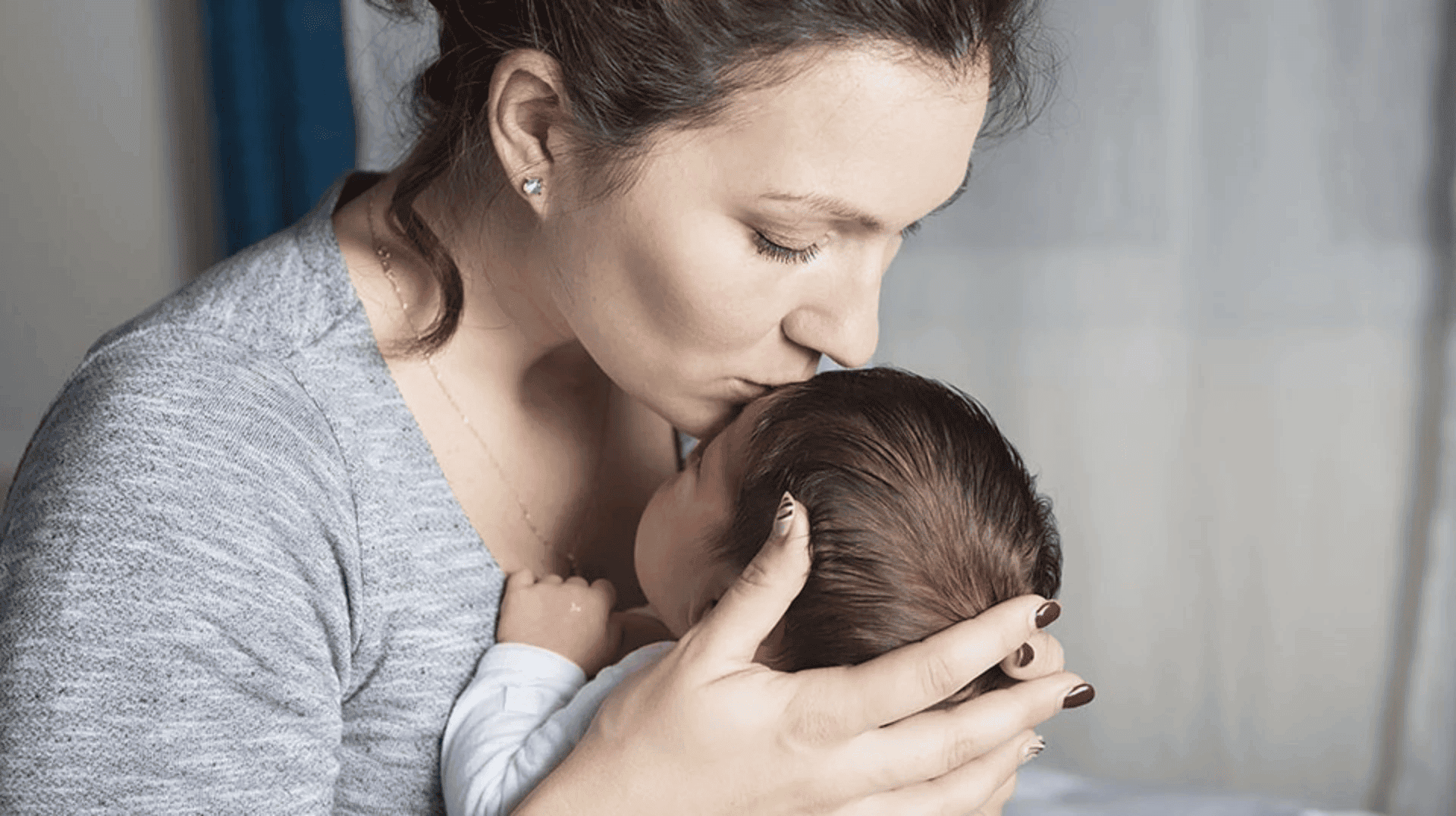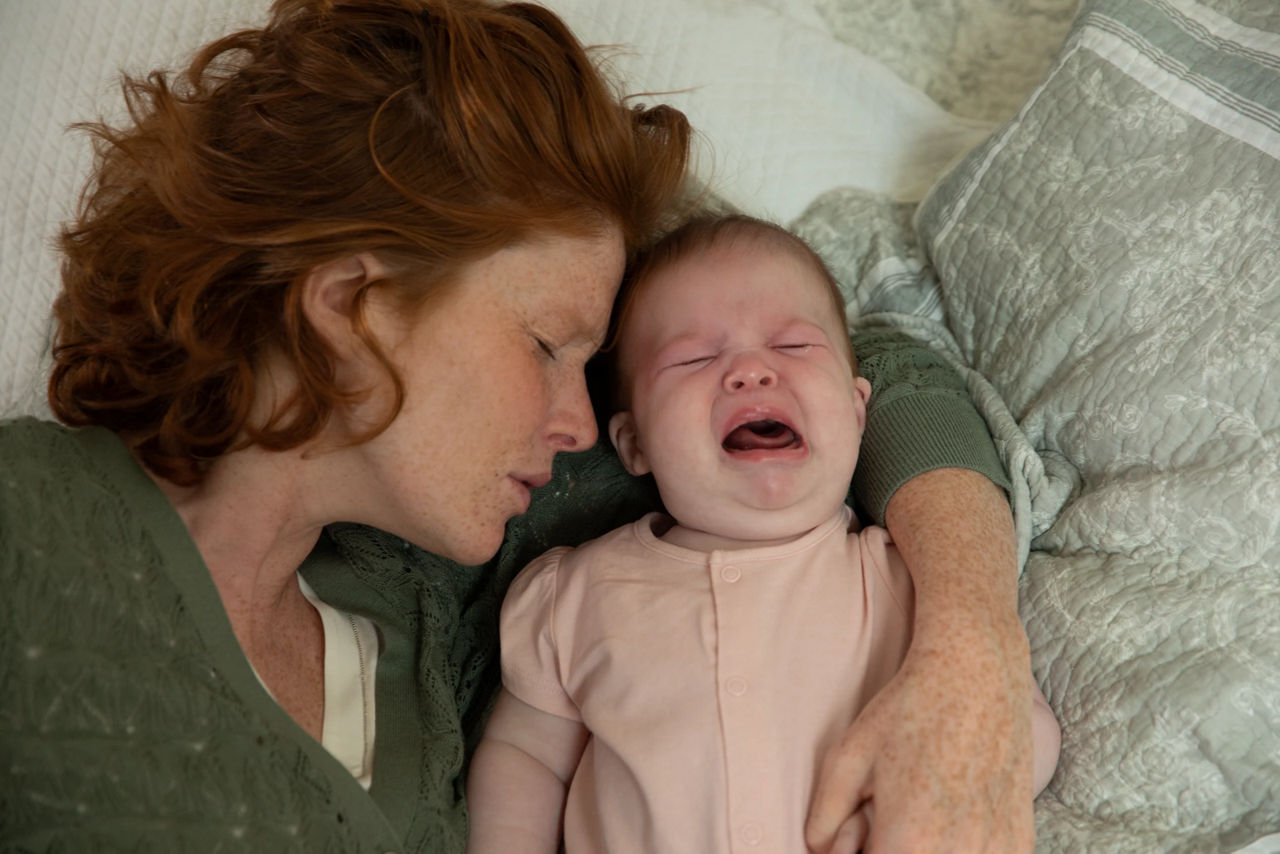Responding to your baby’s cries is very important, especially in these first 6 months of life. You cannot spoil a newborn baby, and in these formative months the “don’t respond” approach should be avoided.
The absolute opposite is what I am talking about. Touch them, hold them and respond to them as much as you can to reduce stress and cortisol levels. If you do that in the first year of life, you’ve got a baby who is less likely to develop stress reactions later. Attachment research backs this up. Babies whose cries are consistently responded to in early infancy are shown to be less needy as they grow and develop and have a stronger sense of self and secure attachment.





